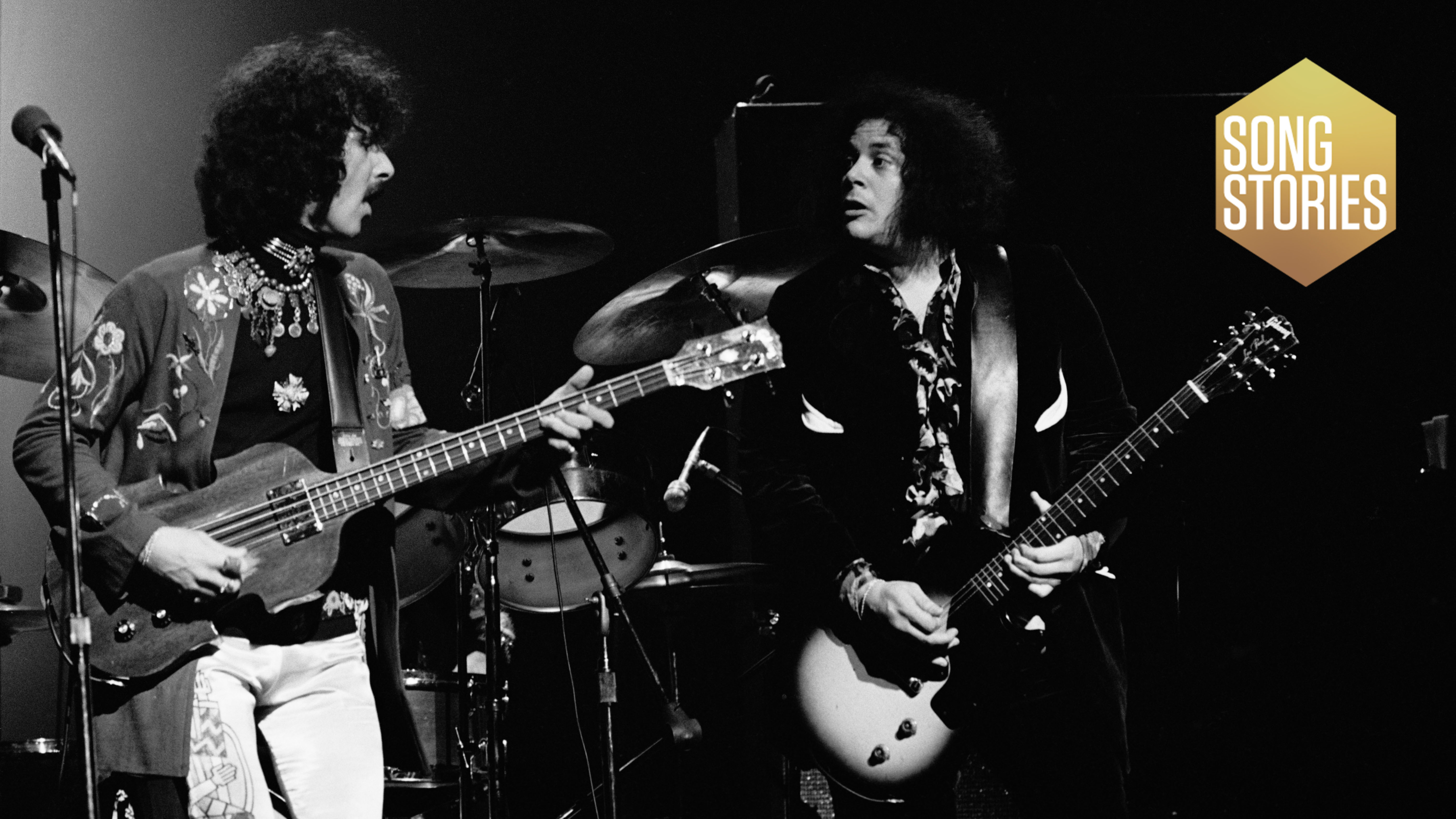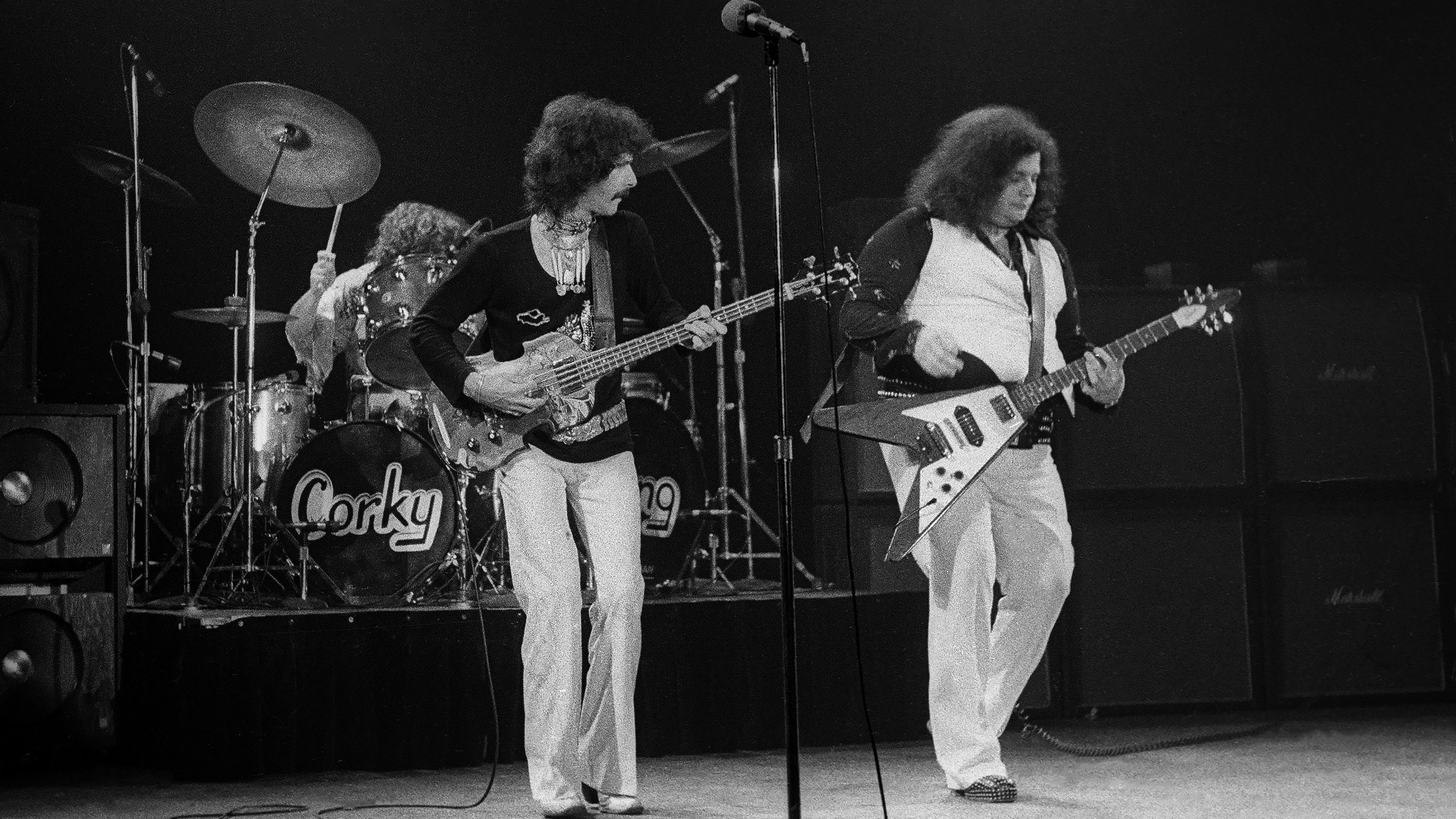Leslie West tells the the story of Mountain's Mississippi Queen: "If only every song was that easy, man!"
In 2011 the late guitar icon offered the inside perspective on his signature song

Want all the hottest music and gear news, reviews, deals, features and more, direct to your inbox? Sign up here.
You are now subscribed
Your newsletter sign-up was successful
In their initial incarnation, Mountain may have lasted only three years, but they made sure they left a legacy to remember. The NYC trio’s three killer early '70s albums of heavy blues rock have continued to wow successive generations of guitar players the world over. Pete Townshend, Slash, Joe Satriani, Ozzy Osbourne and Joe Bonamassa are just a few of the A-list luminaries who have worshipped at the altar of Leslie West and his gut-wrenching blues tone.
Equally key to the band’s monstrous sound were sticksman Corky Laing and bassist Felix Pappalardi, the latter of whom had already produced Cream’s Disraeli Gears and West’s '60s R&B garage combo The Vagrants by the time Mountain got it together. Within a year of forming, the group’s proto-metal grooves were already attracting a fervent following – and a Saturday evening slot at the famous Woodstock festival certainly didn’t do their cause any harm.
Mountain’s debut platter, Climbing!, (released in March 1970) kicked off with Mississippi Queen, a tell-tale two-and-a-half minutes of explosive high-octane riffage and sweet vibrato soloing, courtesy of West. Not only is the track now regarded as the band’s signature tune, it was also Mountain’s biggest hit, reaching No 21 on the Billboard Hot 100. No-one was more surprised than Leslie himself when the single shot up the charts.
“At the time, radio in the United States wouldn’t play heavy music like that until after midnight,” Leslie told us in 2011. “During the daytime, they would play stuff like Santana, because when women were cleaning the house they wanted to get them to clean the house really fast! So we were lucky Mississippi Queen made it in spite of only being on between 12 and six in the morning.”
It was very simple to write that song. If only every song was that easy, man
Leslie West
The starting point for Mississippi Queen came with the lyrics, co-written by drummer Corky Laing and one of Felix Pappalardi’s closest friends, musician David Rea.
“Corky had maybe half of the lyrics,” explained West. “‘Mississippi Queen, you know what I mean/She taught me everything…’ and I soon came up with the riff and the chord changes. The next thing we knew, we were in the studio. I was surprised how easily it flowed, because usually it takes a while and you’ve got to take the whole song home, work on it, and you say, ‘That’s not right, and that’s not quite what I was looking for,’ but that one really seemed to work. It was very simple to write that song. If only every song was that easy, man!”

I got a nice big fat sound on the rhythm, and that was the Sunn
Leslie West
The Climbing! album was laid down at New York’s Record Plant studio with Pappalardi taking up production duties. As far as West remembers, the recording of Mississippi Queen was just as effortless as the writing had been, and the rhythm track was nailed in only two or three takes. Gear-wise, West plugged his trusty sunburst Les Paul Junior into his (in)famous Sunn Coliseum amplifier, which had been designed as a PA system.
Want all the hottest music and gear news, reviews, deals, features and more, direct to your inbox? Sign up here.
“I got a nice big fat sound on the rhythm, and that was the Sunns,” Leslie enthused. “That’s what made people go, ‘Jesus, it sounds like a multitrack!’ It was so fat! I had two stacks of two 4x12s, and I put the head in the middle of the two stacks. I didn’t put the head on the top. I put it in the middle so I could get to the controls, and I didn’t put the volume way up. I distorted the preamp and put the master volume at four or five, because you wanted to get the tone rather than the volume in the studio.”
Several takes of the solo were recorded, then spliced together for the final mix.
“The only solo that I ever did in one take, without editing, was Theme For An Imaginary Western,” said West. “With Mississippi Queen, I would play a lick and then listen back to see how I could answer myself. Then on the rideout, I just let it go. But Jesus Christ… now, with Pro-Tools, it’s so much easier! Back then, you had to use a razor blade on the tape. It wasn’t so easy, but it was a good way to do things and it helped me build the solo and fill it out.”
You want a solo that you can sing back, and one of the good things about the Mississippi Queen solo is you can sing it – it’s like a song within a song!
Leslie West’s laid-back, melodic, vibrato-laden soloing is really something to treasure on Mississippi Queen. The big man always took the same approach when it comes to his solos.
“To me, less is more,” explained Leslie. “I told that to Joe Bonamassa [Joe made a guest appearance on West’s new all-star album, Unusual Suspects, and they also worked together on other projects] because he plays really fast. I said, ‘Joe, whatever you’re going to play… in your head, divide it by two. In other words, cut it in half and then cut it in half again, and then play and you’ll get the most melodic solo!' You want a solo that you can sing back, and one of the good things about the Mississippi Queen solo is you can sing it – it’s like a song within a song!”
Mississippi Queen sounds as ballbreaking today as it did when it was first released more than 40 years ago, but there’s one thing that riles Leslie every time he hears it. “I don’t know why Felix stuck the piano in there. It does not belong in that f***ing song! I hate it!”